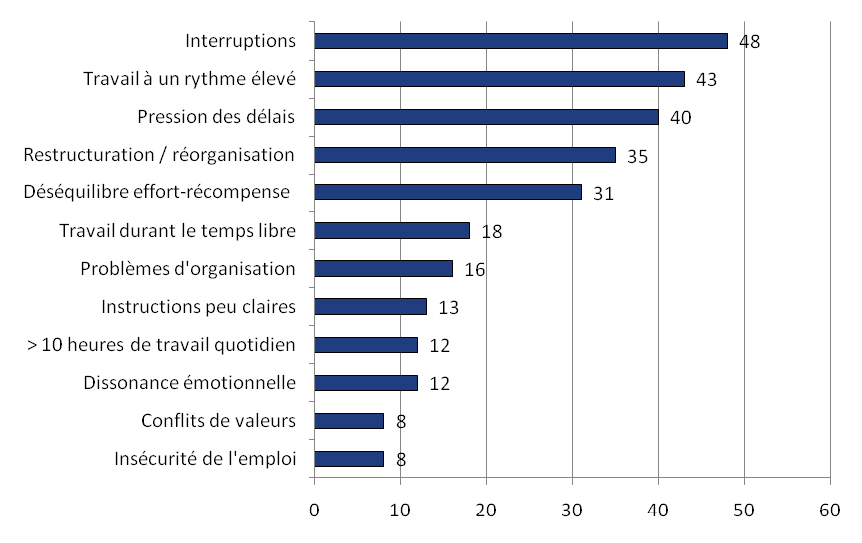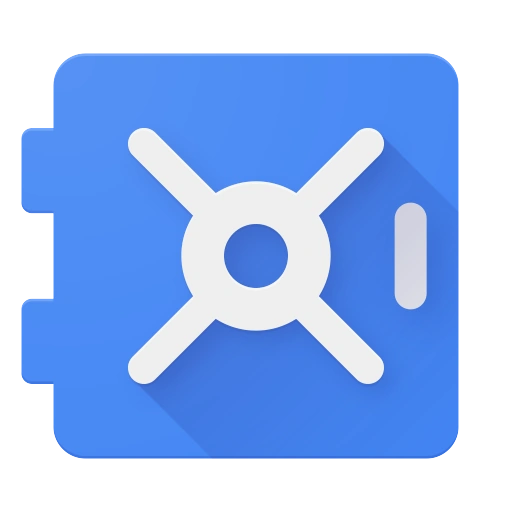The deluge of digital data reaches us everywhere, all the time. Our computers and smartphones constantly demand our attention. This permanent zapping has an impact on our brain with cognitive overload and increased stress, especially in the working world. How can we cope with this ever-increasing flow? How can we protect our brain's vital need for calm?
The Wild West of technology
Every day, more than 281 billion emails (excluding spam) are exchanged for 3.8 billion Internet users! Not counting messages and notifications on mobile devices.
We can speak of the Wild West, because it is chaos. Bad practices, hyper-connectivity and "digital noise" generate freewheeling nuisances that attack the health and well-being of individuals.
We are witnessing an unprecedented deluge of daily data and unprecedented levels of permanent stress. Too much information, arriving too fast, in volumes too large to be processed serenely.
Weapons of Mass Distraction
It's 8:00, you start working on a topic. At 8:06 an urgent email interrupts you. Then a text message, a phone call, a chat and more emails. It's 10:30 when you come back to your file, you've lost the thread. In less than 3 minutes, you will be interrupted again.
The management - or rather the handling - of this avalanche of information is encroaching on the core business, leading to a feeling of deskilling, of being distanced from real tasks. The workload has become denser and more intense, with a permanent race to the top - 50% of emails are marked as urgent! - where the law of immediacy reigns.
Managing emails alone represents on average 30% of an employee's day. One out of two executives does not allow himself to disconnect from work in the evening, considering it an implicit rule if not an injunction.
Between emails, phone calls, text messages and other messaging, these are all incessant solicitations that require processing and response. An employee is interrupted by a distraction every 3 to 6 minutes. The cost of a distraction is equivalent to its duration plus a minimum of 12 minutes for the brain to refocus on a committed task.
According to a University of California study, it takes 12 to 23 minutes to shift cognitive focus and return to an adequate state of concentration.
Too much intrusion of the smartphone and the professional in the home also causes problems - arguments, tensions, estrangement.
Digital stress
The permanent cognitive overload leads to a state of mental fatigue, which is a breeding ground for burn-out. This fashionable term has appeared precisely with the sudden evolution of the work environment due to new technologies.
In Switzerland, a quarter of the working population is exhausted and stressed, with an estimated economic cost of 5.4 billion francs.
Email is the number one culprit of office stress. A University of California study shows that the more time spent on email, the more stress and the lower productivity. This is true regardless of the position held.


Changing toxic habits reduces stress and mental fatigue.
It becomes imperative to learn how to better manage tools to limit the impact of distractions and the avalanche of information.
The myth of multitasking
Multitasking is a valued, if not implicitly required, skill, but it is still an illusion. All the studies prove it. If people have been doing several things at the same time for a long time, access to much more information and at a much faster speed, multiplies task changes and interruptions.
In multitasking mode and given the increase in solicitations, the brain must keep and manipulate a multitude of elements at the same time. Chronically, this leads to cognitive overload: fatigue, irritability, feeling unable to think, memory loss.
Each change of task - that is, of mental focus - costs attention and fatigue. It results in cognitive overload and stress. The University of California study reports that after only 20 minutes of interrupted work, the test group shows significant stress, frustration, workload and pressure.


Chronic stressors, SECO study, 2010
Who has never been on the phone while writing an email? Can you follow the conversation and what you are writing perfectly? In a double-tasking situation, the same neural network is used, there is saturation.
In 2004, the average concentration time per activity was 3 minutes. In 2012, it drops to 1 minute 15. It is even 45 seconds for... the 2000 generation, born with digital technology.
In addition to saturation, the double-tasking situation disrupts the inhibition mechanisms of selective attention: noise, office hubbub, clicks are no longer filtered by the brain.
Young people less good than their elders
It is expected that the younger generations will mechanically lower the level of stress. Born with digital technology, they would be natively multitasking (comforting them in a compulsive zapping that will however do a lot of harm). The surveys are surprising since it is exactly the opposite.
A European survey of 30,000 employees conducted by the GFK institute shows that young people are more stressed about information technology than their elders.
Toxic habits
At 6:30 am the alarm clock rings, you look at Whatsapp in bed then while eating. You continue on your device in the train or you read a free newspaper - mostly composed of anxiety-provoking, racy or useless information. It's not 8 o'clock and your mind has only been occupied by external stimuli. Now it's your email box that is knocking you out with information to process. At 10am, a break, cell phone in front of you. The day continues on this momentum. It is 11pm, you are still checking Facebook in bed.
Can we constantly stimulate the brain without it suffering? According to Francis Eustache, a researcher in neuropsychology, it is essential to give the brain opportunities to disconnect. There is a network of neurons for which these pauses are vital: the default network.
The default network is activated when the brain is at rest, when thoughts are wandering, when we seem to be not very active. This neural network plays a fundamental role in memory construction, synthesis, creation and projection into the future. It is essential to well-being and good health.


Relearning to do nothing
Who hasn't come up with a good idea or solved a problem in front of their mirror while brushing their teeth, in the shower or sitting on a bench? These are moments of pause when the default network is at work. It synthesizes, reflects, sheltered from external stimuli.
Knowing how to protect yourself
Being able to protect oneself against this "digital noise" and the intensity of the demands of our days is becoming more important than ever. By creating an adapted routine and imposing a change of habit, it is possible to fight effectively against the nuisances and to significantly increase one's well-being and satisfaction.
The key to good attention is to be able to sequence tasks by giving yourself one goal after another. Although this may seem easy, it is more difficult to stick to it. It is also important to set aside time for yourself to allow your brain to take breaks.
Here are a few simple actions to implement with immediate results:
- Turn off sound and visual notifications on your mobile and email client (What?!? Are you crazy?!).
- Check your emails at fixed times (e.g. 3 times a day, or less!)
- Apply the "less than 2 minutes, I do. Otherwise I plan."
- Impose your "airplane mode" time, a time slot without interruptions (no emails, no phones, no colleagues) to work on your priority task of the day. Often one hour is enough.
- On foot, on the road, on a walk: give your mind a break and let the default network do its work.
- Practice cardiac coherence 3x 5 minutes a day: breathe in for 5 seconds then breathe out for 5 seconds.
- Ban the cell phone from the bedroom (if not in airplane mode, as an alarm clock)
- Choose your "sacred hours", where you forbid yourself to touch your mobile (e.g. in the morning until the end of breakfast and in the evening from 8pm).
- All mobiles have a configurable "do not disturb" mode to filter interruptions (only favorite contacts for example).
Disconnection is a legitimate and necessary need. By creating a strategy adapted to your lifestyle and your professional imperatives, you reduce stress and fatigue. And you give your brain a break.
Sources
The Cost of Interrupted Work: More Speed and Stress, Gloria Mark, University of California
Communication practices of executives: intensive use of ICT and psychosocial issues, Cindy Felio, University of Montaigne Bordeaux III
The cost of stress in Switzerland, SECO, Federal Department of Economic Affairs, Education and Research
Job Stress Index 2016, Health Promotion Switzerland










Google Workspace superior to Microsoft 365
Hyperconnected: the brain at risk
Choosing a project management software